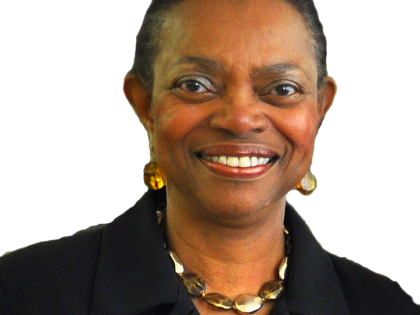
Electronic Voting Vs. Paper Ballots: What Should It Be?
November 13, 2006 (Brooklyn, NY): State Senator Velmanette Montgomery (D-Brooklyn) today held a citizens’ briefing to respond to concerns about the process for selecting new voting machines for New Yorkers to use in the 2007 elections. The Senator was joined by other local elected officials, community board members and representatives of the League of Women Voters, New Yorkers for Verified Voting, the Task Force on Election Integrity of Community Church of NY, and WheresThePaper.org.
Mechanical leveler voting machines will be banned by state law as of next year, and New York City must select and begin to implement a new voting system by February 2007. The group presented an overview of electronic voting machines, the paper ballot and optical scanner alternative that most citizens now advocate, and some of the issues these technologies raise. They also discussed the reasons why the City Board of Elections should select the paper ballot and optical scanner system over controversial electronic voting machines.
"Federal law requires New York to have voting machines accessible to voters with disabilities in each poll site, and state law requires us to replace our mechanical lever machines by next year's primary election," said Senator Montgomery. "It is imperative that our election commissioners select new systems that are not only secure, accessible and affordable, but also understandable and manageable by our voters, poll workers, and election staff."
"New York State is on the verge of a decision that will affect voting in our state for decades to come,"said Bo Lipari, Executive Director of New Yorkers for Verified Voting. "If we are to replace our lever machines, as currently called for by New York election law, we have only two choices -- unreliable, expensive, failure prone electronic touch screen voting machines, or the mature, cost effective system based on paper ballots and precinct based ballot scanners.
"The many failures of electronic touch screen voting machines on Election Day resulted in long lines and lost votes at polling places around the United States," Lipari continued "But in states that used paper ballots, if problems occurred it was possible to conduct recounts. Paper ballots offer a permanent, audible record of the vote that cannot disappear into the electronic ether."
"Electronic voting machines will diminish citizen participation in the electoral process," charged Senator Montgomery, and this is especially true among minority voters and those who are not computer savvy." The Senator noted that "e-voting systems are vulnerable to software attacks and security threats and most New Yorkers will not want participate in an undemocratic process that has the potential for corruption on so many levels."
"For more than eighty years, the League of Women Voters has been encouraging and educating voters to participate in the electoral process. That is why we are committed to supporting a voting system which is secure, accurate, recountable, and accessible," said Adrienne Kivelson, City Affairs Chair, of the League of Women Voters of New York City. "After weighing the options, we are convinced that electronic voting machines are too fraught with problems, too prone to error, to instill confidence in our voters."
"We urge everyone to treat computerized voting machines as more than video games. If a candidate's name lights up on a touchscreen and prints on the paper audit trail, that doesn't tell us that the machine is working correctly internally, where our legal votes are recorded," said Teresa Hommel, of the Task Force on Election Integrity of Community Church of New York.
We are the last state to become HAVA compliant," said Marjorie Gersten, a Brooklynite who has worked to educate the public on this issue. "We have the opportunity to avoid the mistakes other have made, and stick to a simple, low-tech solution."
For more information on this topic, please call the League of Women Voters at 212-725-3803 or Teresa Hommel of Community Church of New York at 212-228-3803.